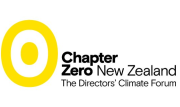
How does your board measure up to New Zealand’s climate disclosure benchmark?

Last year marked the first time New Zealand entities filed climate statements under the climate-related disclosures (CRD) regime. Most have now completed their second round, prompting questions about the cost-benefit ratio of compliance – and just who these elusive ‘primary users’ might be.
The recently released advisory opinion from the International Court of Justice (ICJ) answers many of those questions and helps put New Zealand reporting entities’ obligations in their proper global context.
What are the climate reporting requirements?
Entities that meet the definition of a ‘climate-reporting entity’ under the Financial Markets Conduct Act 2013 (FMCA) must prepare and lodge climate statements on a public register. The statements must comply with the External Reporting Board (XRB) climate standards. These standards are designed to inform users about the climate-related risks and opportunities that may impact the reporting entity. Compliant climate statements must be signed off by the entity’s directors and lodged within four months after the entity’s balance date.
The framework for our CRD regime is intended to ensure impacts of climate change are actively considered in business and investment decisions, with captured entities needing to demonstrate accountability and foresight in relation to climate-related risks and opportunities. In theory, this should help smooth the transition to a more sustainable, lower-emissions economy. This intent is consistent with the ICJ’s advisory opinion, which reinforces New Zealand’s world-leading approach.
Who must comply?
For directors of listed issuers, your entity will be caught if it meets the definition of a ‘large listed issuer’, currently defined as an entity with quoted debt or equity securities exceeding $60 million (excluding issuers listed on growth markets). Other categories of climate-reporting entities include large registered banks, managers of registered investment schemes, licensed insurers and Crown financial institutions.
There are around 200 entities required to prepare and lodge climate statements. With the Government consulting on potential changes to reporting thresholds, this number could significantly reduce in the future. However, this might only be a temporary blip – the overall international trend is towards ever-increasing climate-related reporting.
For any entity that does not meet one of the categories of climate-reporting entity, voluntary reporting is an option, and one that all entities with international supply chains or customer bases in particular should consider.
What do directors need to be aware of?
Directors are responsible for ensuring climate statements for which they are responsible comply with the New Zealand Climate Standards.
Directors need to have a good understanding of transition and physical risks, climate risk terminology, how their entity can measure emissions, ways to reduce its emissions footprint and how identified climate-related risks will impact the entity’s business model, strategy and financial planning processes.
The XRB’s intent when designing the New Zealand Climate Standards was for directors to consider the regime in the wider context of their entity’s purpose, strategy and operations, over the short, medium and long term.
Directors play a critical role in providing high-level strategic oversight of an entity’s climate-related disclosures. According to the XRB, directors should consider climate-related risks and opportunities in an integrated way with their entity’s strategy and operations.
When reporting, directors should carefully consider the risk of greenwashing, greenhushing or greenwishing in light of their duties under the Companies Act 1993 and the requirements of the New Zealand Climate Standards. The Financial Markets Authority (FMA), in December 2024 and August 2025, acknowledged the challenges for directors in its insight reports from its reviews of climate-related disclosures – essential reading for directors of climate-reporting entities.
Directors who fail to comply with their obligations in relation to the CRD regime may face criminal liability. Potential penalties include conviction and imprisonment for up to five years, a fine not exceeding $500,000, or both, for the most egregious contraventions. These are some of the harshest penalties imposed under the FMCA, highlighting the importance of getting climate reporting correct.
The international context
New Zealand may have been the first in the world to impose laws requiring directors to disclose the impacts of climate change on their businesses, but the rest are catching up – and in some instances, overtaking.
The ICJ’s advisory opinion – while directed at sovereign states and not commercial entities – is likely to have significant implications for climate change litigation and the future regulation of greenhouse gas emissions. It represents a significant development in clarifying international law obligations for nations when it comes to managing the risks posed by climate change.
Our CRD regime can be seen as a pre-emptive response to that development, giving directors of climate-reporting entities a role to play in supporting New Zealand’s discharge of its international law obligations.



